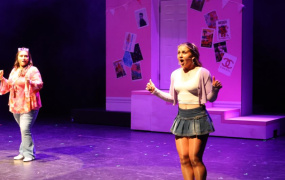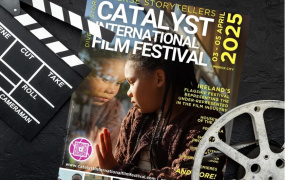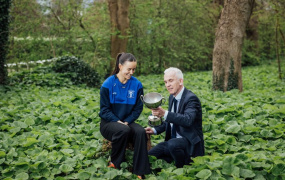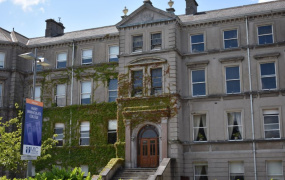Student Testimonials - M Ed in Literacy Education
Ross O'Connor
Ross O' Connor - M Ed in Literacy Education
I decided to apply for the M Ed in Literacy Education as I have always been interested in language learning. Before becoming a teacher, I completed an undergraduate degree in languages and was always fascinated by language acquisition. When I researched the course, I liked that there were many different aspects to literacy education, and it felt like a good fit for me. I am passionate about the area of Teaching English as an Additional Language and there seemed to be good scope to explore this in greater details.
The course was filled with practical advice and suggestions to apply in the classroom. I really enjoyed getting lectures from Speech and Language therapists and specialists in all areas of literacy as I found that there was so much opportunity to ask questions that I had around teaching language in general. It has been helpful to me as a researcher. Every assignment had a purpose and they allowed us to focus on our interests and strengths. They weren't all essays either which was good to keep us going. The most important thing was that each one prepared us for the task on completing the research project in the second year. This was my third time completing a thesis, but it was the first time I felt comfortable and confident in my abilities. That was all down to the skills I learned during the first year of the course.
Completing a M Ed whilst working full-time was a goal in itself. There were times when it was tricky but the support you get on the course gets you through it all. I was given every opportunity possible to show my best work and the feedback helped me improve each time.
Currently I am happily teaching senior infants in a very diverse school with a large proportion of emergent bilingual students, and I get to apply my learning from the M Ed each day. It is also my first time in infants, so I am seeing a whole other side to language acquisition which is brilliant. In terms of academia, I focused on the area of Initial Teacher Education and TEAL education. This is an area I really have enjoyed learning about, and I hope to continue to look into it, in the future. My research project was awarded the John Coolahan Research Support Framwork by the teaching council and I look forward to sharing it with others as part of this.
This course was fantastic and really, I didn't know what to expect. The lecturers and course director are so helpful and will support you through each aspect as you move along. It is also lovely to be a part of a group who have similar interests as you build a little community amongst yourselves. There is scope to bring your own interests and experiences with you into the course and to make what you want of it. I really couldn't recommend it enough.
I had always considered returning to education to undertake a master's. As part of my undergraduate course for primary teaching I specialised in the area of Language and Literacy and with the introduction of the M Ed in Literacy Education at MIC in September 2018, I felt that this was the right course for me. This course has given me with the opportunity to grow as a teacher, providing me with a more in-depth understanding of Literacy acquisition and development, the role of a Literacy leader, and critical approaches to teaching children’s literature. It enabled me to undertake a piece of research in an area of Literacy that I am interested in and with no previous experience in completing a research study, the research methods modules, workshops, and support of my supervisor guided me throughout the process. I gained research skills; analytical skills; critical and evaluative skills over the duration of the course.
The lecturers and guest lecturers had a wide range of literacy backgrounds, covering various aspects of literacy development in the 21st century, giving each student the opportunity to find what they were interested in, and pursue this area for their own research study. Throughout the programme of study, the lecturers were very approachable and supportive, showing great interest in our studies, wanting us to do well. The diversity of the student cohort provided a variety of insights into a number of fields including adult literacy, speech and language therapy, and the work of librarians. Their insights and experiences added significantly to the richness of the course. The small nature of the cohort enabled an abundance of opportunities for interaction between lecturers and students, creating authentic opportunities for knowledge development in Literacy. This also meant that lecturers knew us individually by name; and allowed us to get to know all students in the cohort. The blended method of learning meant that some weekends were on campus with face to face lectures and other evenings were facilitated online. This flexibility was a major factor for me as it meant that I did not have to travel to Limerick too often.
This course has equipped me with the tools necessary to enhance my own teaching of Literacy and further developed my understanding of contemporary approaches to literacy development in the 21st century classroom. I hope to continue to share what I have learned from the modules and my research study with my colleagues, and alongside them reflect on and improve literacy practices within our school. The M Ed in Literacy Education journey has been one of the greatest experiences for me, both professionally and personally.
Sarah O'Callaghan
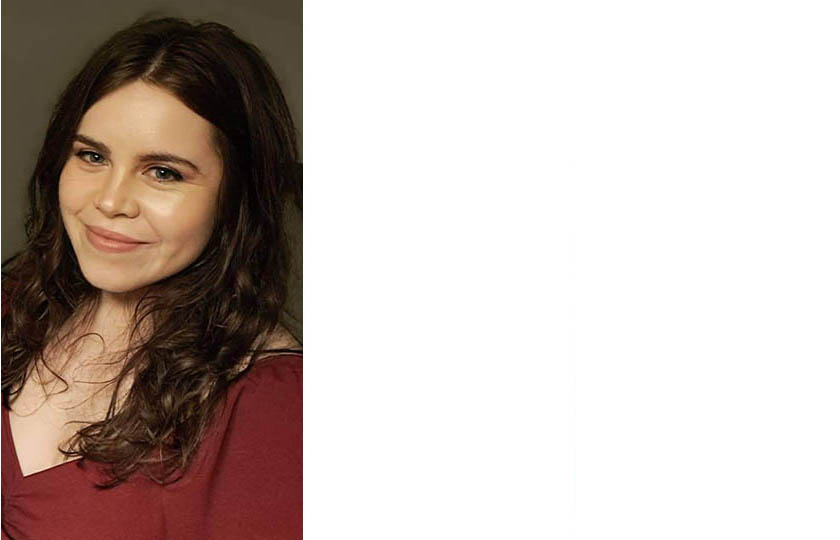
Sarah O'Callaghan - M Ed in Literacy Education
I decided I wanted to do a Masters in the spring of 2021 and started researching courses from various colleges around Ireland. Having looked at the modules and how the courses were set up, it was clear to me that the M Ed in Literacy at MIC was well-structured and the modules looked both interesting and relevant to my practice as a teacher. This proved to be true, as I found myself using many of the lessons and techniques we had come across in the course. In addition, I developed good research skills, having never done a dissertation previously. I also found I was more confident in my teaching day-to-day, as the course had equipped me with the knowledge and ability to conduct research into areas of teaching I was unsure of. Rather than relying on ‘tips and tricks’ from teacher influencers, I feel confident that the strategies, approaches and resources I am using are grounded in research and best practice. It also opened my eyes to the idea that there are trends in education and that these trends can change over time – what was deemed best practice five years ago may not be anymore – and that we have a duty as educators to keep abreast of the latest research and what this means for our teaching.
The best parts of the course were undoubtedly the face-to-face lecturers. The course co-ordinator, Josie, has a knack for developing engaging and purposeful lectures that provide us with the tools we need to seek and find new knowledge and developing the craft of academic writing. There were also a host of excellent guest lectures, providing a good foundation of knowledge across all areas of literacy. There was a nice balance between this foundation in year 1 and the dissertation in year 2, which allowed us to focus in on the area we were most interested in.
Going forward, I plan to continue to develop my practice as a teacher, research areas I wish to know more about and to engage with new research and methods of teaching. I did this course because I wanted to become a better teacher and I feel I am far more knowledgeable and confident as a teacher having completed it. If you have an interest in literacy education and developing your practice, this is certainly the course for you!
Louise Finneran
Louise Finneran - M Ed in Literacy Education
I always enjoyed the literacy modules as part of the my B.Ed. degree and when the opportunity came to take on the specialism in literacy, I quickly learned that this was an area of interest to me. Literacy is at the heart of everything we do in school and so I always found myself questioning things in the classroom and sometimes not knowing where to go for answers, particularly when there were children with literacy difficulties. I felt as though I had barely scratched the surface in terms of literacy education and I wanted to learn more, which is how I found myself applying for the MED in Literacy.
It was a big step to apply for the MEd but now as I am about to graduate from the course, I can safely say it was a brilliant decision. It is a demanding course, but there are great supports available along the way. The structure of year 1, where there is one module and one assignment at a time is excellent. It allows you to really get into the reading around that assignment area. It also helped me to be able to focus on one assignment at a time given that I was trying to juggle teaching and life alongside the masters! After completing this masters, I feel more confident in my ability to teach literacy and to keep up with evolving practice.
Very often, we were sent off to research the literature available on certain topics or areas of literacy as part of the assignments, therefore there was flexibility to choose particular things that were of interest to us or that were applicable to our teaching contexts. I really enjoyed this as it meant the literature I was reading was more beneficial to me. The skills needed to find and evaluate reading material are ones that will definitely stick with me and I know I will use them constantly both as a teacher and perhaps in other ways in future! I certainly feel more capable of questioning and evaluating methodologies and resources that are out there, which will allow me to make more informed decisions as a teacher. I look forward to putting all I have learned to good use in my classroom for now and who knows what the future will bring as a MEd in Literacy Education graduate!
Ciara Dowling
Ciara Dowling - M Ed in Literacy Education
I had always considered returning to education to undertake a master's. As part of my undergraduate course for primary teaching I specialised in the area of Language and Literacy and with the introduction of the M Ed in Literacy Education at MIC in September 2018, I felt that this was the right course for me. This course has given me with the opportunity to grow as a teacher, providing me with a more in-depth understanding of Literacy acquisition and development, the role of a Literacy leader, and critical approaches to teaching children’s literature. It enabled me to undertake a piece of research in an area of Literacy that I am interested in and with no previous experience in completing a research study, the research methods modules, workshops, and support of my supervisor guided me throughout the process. I gained research skills; analytical skills; critical and evaluative skills over the duration of the course.
The lecturers and guest lecturers had a wide range of literacy backgrounds, covering various aspects of literacy development in the 21st century, giving each student the opportunity to find what they were interested in, and pursue this area for their own research study. Throughout the programme of study, the lecturers were very approachable and supportive, showing great interest in our studies, wanting us to do well. The diversity of the student cohort provided a variety of insights into a number of fields including adult literacy, speech and language therapy, and the work of librarians. Their insights and experiences added significantly to the richness of the course. The small nature of the cohort enabled an abundance of opportunities for interaction between lecturers and students, creating authentic opportunities for knowledge development in Literacy. This also meant that lecturers knew us individually by name; and allowed us to get to know all students in the cohort. The blended method of learning meant that some weekends were on campus with face to face lectures and other evenings were facilitated online. This flexibility was a major factor for me as it meant that I did not have to travel to Limerick too often.
This course has equipped me with the tools necessary to enhance my own teaching of Literacy and further developed my understanding of contemporary approaches to literacy development in the 21st century classroom. I hope to continue to share what I have learned from the modules and my research study with my colleagues, and alongside them reflect on and improve literacy practices within our school. The M Ed in Literacy Education journey has been one of the greatest experiences for me, both professionally and personally.
Eoghan O’Connor
Eoghan O’Connor - M Ed in Literacy Education
I decided to apply for the M Ed in Literacy Education as I wanted to ensure that I was following best practice in my classroom. Literacy was such an overwhelming subject to teach, with so many different elements, and even after a four-year undergraduate programme I felt I had much to learn. Fast forward two years, and I am confident that I have a much more informed approach in areas such as spelling, reading comprehension, and writing instruction. I’m also confident that this course has given me the knowledge and confidence necessary to put myself forward for roles involving leading literacy development at a whole-school level going forward.
The selling point of this course was the small group size, which meant that everyone got to know each other and form a support network for assignments and our dissertations. We had some excellent lectures from a wide variety of fields, including speech and language therapists and experts on the Universal Design for Learning. Josie was always our favourite though! We covered a broad range of topics in Year 1, but in Year 2 were able to focus in on a research area that interested us. I chose morphology and completed a pilot study with my sixth class on using meaningful parts as the basis for spelling instruction.
I would recommend the M Ed in Literacy Education to anybody interested in upskilling their classroom literacy instruction, and those with intentions of being involved in literacy leadership or academic research going forward.
Edmond Scannell
Edmond Scannell - M Ed in Literacy Education
Over the years I had toyed with the idea of a Master's, and I even began a Master's some time ago. However, I quickly lost interest in this and decided to look elsewhere. As a teacher in Special Ed, I always had an interest in Literacy and this course seemed to be the perfect fit.
From the outset, my lecturer allayed my fears over my writing skills. It had been quite a while since my last course, so I felt a little out of touch and that maybe I would be too far behind everyone else. I am paraphrasing her now, but she more or less said, “I can hear your voice in your writing. I have students who have all the writing skills, but I can’t hear their voice.” This gave me great encouragement to continue to develop ‘my voice’ and also upskill in the techniques of academic writing.
My academic writing skills have flourished, particularly under the wing of my supervisor in the thesis writing process in the second year. I have learned how to target academic research in a particular area of interest through online resources. This includes how to disregard articles that are not relevant which is a great time saving skill. One helpful maxim was to ‘do something every night’ (when it comes to writing the thesis). That way, you’re not ‘at panic stations’ as the deadline approaches. Great advice.
For me, the best part of the two-year Masters was the first year. I didn’t know at the time, but the first year was such a pivotal year. And while it was scary and daunting, it was exciting and stimulating in equal measure. We had a small class and we bonded really well. It wasn’t long before we had a class WhatsApp group and this turned out to be most beneficial in terms of friendships and collegiality. The first year was helped by having a fantastic lecturer. The best part was because an awful lot of what we were exposed to in the first year, along with all of the encouragement, helped in so many ways in the writing of the thesis in the second year. I had an idea in the first year of what my thesis was going to be about, but this all changed in the second year, and I found myself looking through my first-year notes and handouts as I settled upon my research question for the thesis.
As I write these notes, I am finalising my 20,000-word thesis! I did not think I had the ability to write so much but it turns out that Josie was right. I have gained such valuable insights, I really don’t know where to start. I have learned academic terminology, academic writing style, signposting, referencing, the list is endless, but it has been such a joy!
I will achieve the goal of being awarded a Masters, and better still, it is in an area of interest, Literacy Education.
I will consider my next steps, including the possibility of a PhD, but for now, I will take time to get back to my much-neglected garden and take stock. I will be truly honoured to step up to the podium next Autumn to collect my parchment, but most of all, I can’t wait to re-connect with my classmates whose shoulders I cried on and my lecturers who slayed my fears.
If you have ever doubted your ability to write academically or to come up with a thesis that could change to course of Literacy Education, then take on the challenge of a Master’s in Literacy in Education in Mary I. You will be given all the tools and skills necessary and encouraged to develop all of the talents you currently possess to become a Master of your field.
- Ross O'Connor
- Sarah O'Callaghan
- Louise Finneran
- Ciara Dowling
- Eoghan O’Connor
- Edmond Scannell



